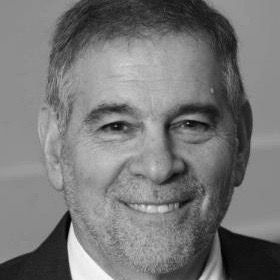
Michael Berenbaum
Michael Berenbaum is director of the Sigi Ziering Institute and a professor of Jewish Studies at American Jewish University.
Purim Government
I have just breathed a sigh of relief. Good news: the world is a less dangerous place; the Jewish people are more secure.
The Scales of Justice and the Angel of Death
“Operation Last Chance: One Man’s Quest to Bring Nazi Criminals to Justice,” Efraim Zuroff (New York: Palgrave Macmillan, 2009) pp. 238.
Who Owns the ‘N’ Word?
This week, we have finally reached Holocaust overload.
It began Sept. 23, 2009, when the General Assembly of the United Nations featured a speech by Iranian President Mahmoud Ahmadinejad denying the Holocaust. In a speech widely cheered in Jewish circles, both in Israel and the Diaspora, Prime Minister Benjamin Netanyahu rose to the bait the next day; standing with German documentation of the gas chambers, he went toe to toe, rhetorical flourish to rhetorical flourish, with the self-elected leader of the Iranian people. “It didn’t happen,” the president said.
Has Justice Returned to the Justice Department?
The Obama administration has decided to drop the charges against Steven Rosen and Keith Weissman, two former AIPAC officials who were to be tried under a rarely used section of the 1917 Espionage Act that makes it a crime for civilians to receive and disseminate secret information.
Has Federation Abandoned Its Central Role?
Having just completed the Passover seders I realize that the attitude with which one asks the question is often as important as the question itself. The distance between the wise and the wicked child is not that great — it is the distance between “we” and “you,” between participation and alienation — but the response to the two questions is radically different.
Politicizing Word ‘Holocaust’ Trivializes It
Names make a difference, and names must be used with precision, or they are abused.
Israel and its relationship to the Shoah
Did Israel attempt to address the problems uncovered by the Jewish condition in the Holocaust? Absolutely and surprisingly successfully. However, it has neither ended Jewish vulnerability nor achieved normalcy for the Jewish people, something that does not surprise religious Jews but astonishes secular ones. At 60, it has not — or at least not yet — achieved the status of a fully privileged member of the comity of nations. That will have to be the achievement of the succeeding generation.

 More news and opinions than at a Shabbat dinner, right in your inbox.
More news and opinions than at a Shabbat dinner, right in your inbox.